ISTP News
All stories that have been tagged with Media
Cost of direct air carbon capture not decreasing as fast as hoped
Media
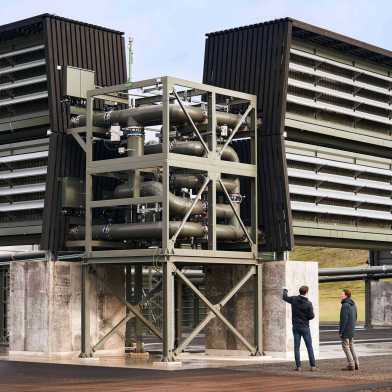
New methodology to project future costs of novel technologies suggests that cost of direct air carbon capture will decrease less than previously hoped. The novel method proposed by ETH researchers combines technology-inherent characteristics with component-based experience curves.
Switzerland's Circular Economy: Is There a Gap Between Intent and Action?
- SEP
- Media

Swiss citizens express strong preferences for a sustainable, circular economy. But do their actions align with their intentions? Sarah Gomm and Clara Brügge shed light on the underlying motivations and barriers.
Exploring the Intersection of Policy and Technology: Yash Dubey's Perspective on his STP Master's Studies
- Master
- Media
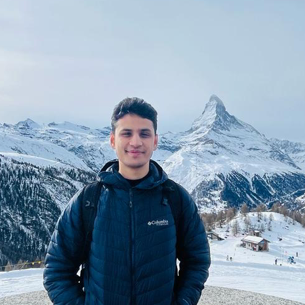
Discover Yash Dubey's journey from the corporate sector to academia as he explores the intersection of policy and technology in his STP Master's studies.
How we can adapt to climate change
Media

Thomas Bernauer contributed to the latest IPCC report on adaptation to climate change. He sees nature and good governance as our most important resources for coping with the effects of climate change. [re-post from ETH Zukunftsblog]
Swiss population prefers strict food waste rules
Media

ETH researchers show that the Swiss population is willing to dig deeper into their wallets to reduce food waste. They prefer government regulations that set strict reduction targets and guarantee transparent monitoring of implementation.
How the Canton of Grisons could be freed from traffic jams
Media
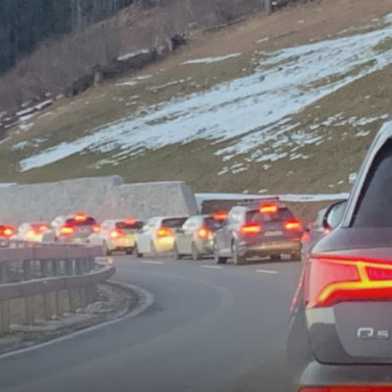
ISTP member Prof. Kay Axhausen spoke about possible solutions to the traffic jams during winter season through the Prättigau (GR) in an interview with Radio SRF 1. He gives his opinion about congestion tolls, construction measures and ways to improve public transport services.
Citizen Science: Knowledge as a weapon in the fight for clean water
Media
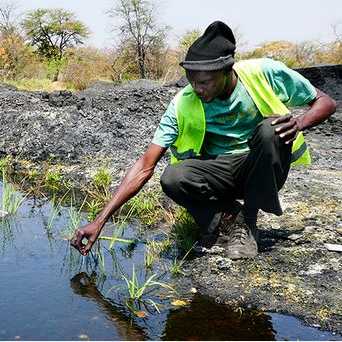
Mining can have serious consequences for nature and the health of the population. Especially in countries of the Global South, where environmental laws are often only inconsistently implemented. In Zimbabwe, people have been fighting water pollution from coal mining for years. But they were powerless against the operators – until doctoral student Désirée Ruppen launched a citizen science project in 2018. [text is inspired by an original Eawag - Aquatic Research report]
"The outcome and extent of the Ukraine crisis are not foreseeable".
Media

Putin's ambiguous threats continue to dominate current crisis diplomacy, says security expert Prof. Dr. Andreas Wenger from ETH Zurich. Military interventions in Ukraine on a local or larger scale cannot be ruled out.
"We need a smart innovation policy"
Media
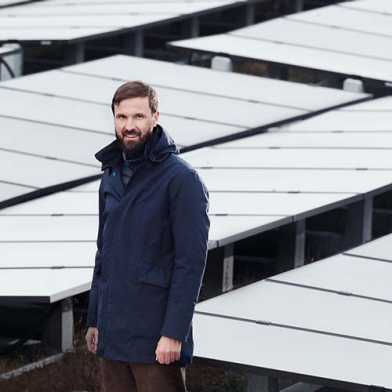
In his interview with ETH Corporate Communications, the ISTP Director Tobias Schmidt talked about decarbonisation, the role of technological transformation and his personal journey from engineer to policy researcher.
Former ISTP student Jan Freihardt interviewed by ETH-Alumni
- Master
- Media
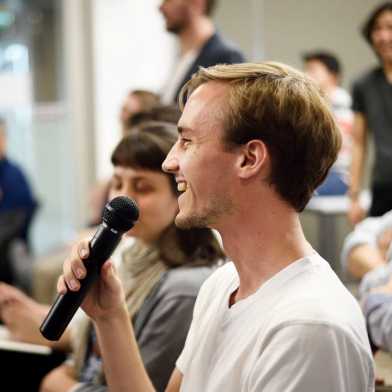
«Is it enough for scientists to simply deliver their findings to politicians and leave it to them to implement the results?» – Science, Technology and Policy graduate Jan Freihardt talks in an interview with ETH-Alumni about his PhD project in Bangladesh, his experience while studying in Zurich and the Wissenschaf(f)t Zukünfte association.
'A smarter, not stricter lockdown is necessary' in the Mail & Guardian
Media

Antoinette van der Merwe and Yael Borofsky wrote an op-ed for the South African newspaper Mail & Guardian on the lockdown in the country.
Mobility behavior in Switzerland during the COVID-19 crisis
Media
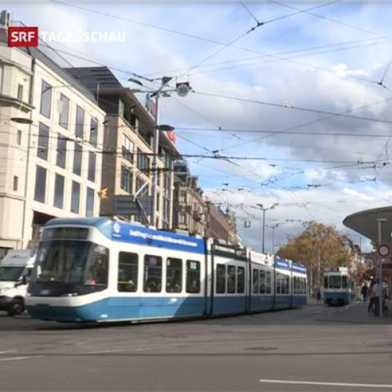
The Swiss Radio and Television (SRF) recently reported on MOBIS: COVID-19 research project, an initiative of ETH Zurich and the University of Basel with the aim of getting a picture of how the pandemic crisis is affecting mobility in Switzerland. The main findings indicate that the population has shifted away from space-efficient large vehicles, such as busses, in light of COVID-19 restrictions. However, car travel and walking have fully recovered in the post-lockdown era.
Are "self-build" high-rises coming to a city near you?
Media
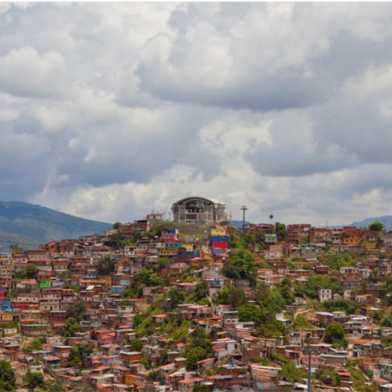
As urban populations boom, homelessness is rising. While governments and property developers struggle to provide answers, some residents are taking matters into their own hands, by constructing buildings that are rising higher into skylines. And now, some leading architects are redefining their own role from designing buildings to offering guidance for eclectic self-build projects. ETH Prof. Hubert Klumpner believes that city "relics" should be seen as opportunities for resettlement.
Corona Crisis hits Smallholder Farmers in Kenya: SRF 1 Report
Media
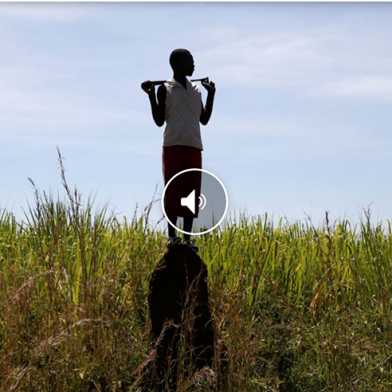
Radio SRF 1, the Swiss national radio station, reported about an ISTP research project, which shows that not only urban residents in poorer regions of the world suffer from the Corona crisis.
Why social distancing is a big challenge in many African countries
Media
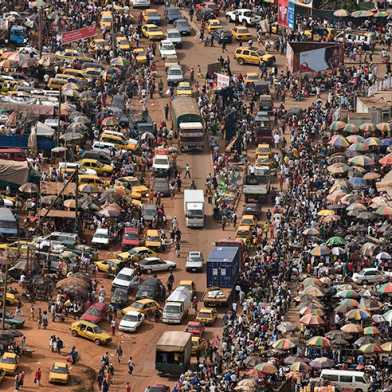
Working from home, distance learning, online shopping – many African countries cannot easily adopt rich nations’ measures against the coronavirus. ISTP member Prof. Isabel Günther calls for international solidarity in the pandemic. (Re-post from ETH Zukunftsblog)
Most tenants in the cities «will soon be forced to no longer own a car»
Media
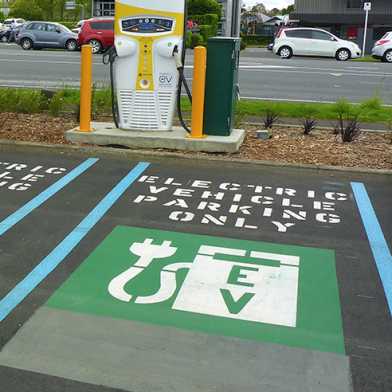
Electric mobility - still a privilege? Electric mobility is not suitable for mass use yet. This can be partially attributed to the lack of public charging stations. The number of Electric Vehicle (EV) charging stations that are located in public parking lots within cities, is indeed modest, as a recent survey conducted among the ten largest cities in Switzerland by the Swiss Daily Newspaper Tages-Anzeiger indicates.
Tenants Should Drive Electric Vehicles Too, highlights an article published in the "Tages-Anzeiger"
Media
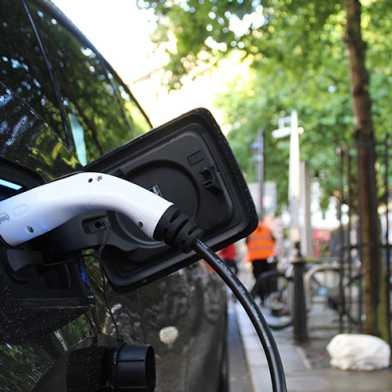
The Swiss Daily Newspaper Tages-Anzeiger recently published an insightful article about the preliminary results of an ETH Zurich Mobility research project. According to these, electric mobility is not suitable for mass use yet. “Charging stations close to apartment facilities should change that,” says ETH Prof. Thomas Bernauer, who gave a talk together with various experts in the field of Electric Mobility on Tuesday, January 14, 2020.
SWI swissinfo.ch announced on Friday, December 20, 2019 a historic nuclear shutdown in Switzerland
Media
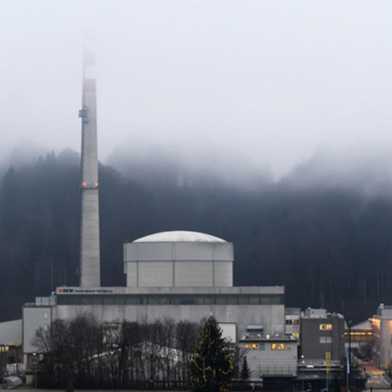
The 47-year-old Mühleberg nuclear power plant, near Bern, was permanently switched off on Friday. This is the first of five Swiss nuclear power reactor to be decommissioned.
SWI swissinfo.ch published in November an insightful article under the title: «Gletscherschmelze fördert Konflikte ums Wasser»
Media
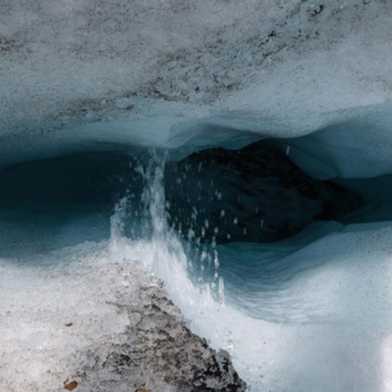
News and information platform SWI swissinfo.ch recently published an article about the retreat of glaciers and the potential water conflicts arise. Paolo Burlando, Professor of Hydrology and Water Resources Management at ETH Zurich, highlights that conflicts over water resources are going to be significantly increased in the near future.
How the road network determines traffic capacity
Media
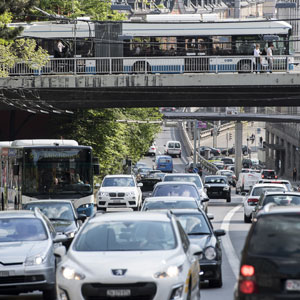
ETH researchers have shown that we can use the structure of urban road networks to predict their traffic capacity. This information enables urban and transportation planners to quantify how changes will influence traffic volumes. (Re-post from ETH News)
Switzerland news portal watson.ch recently published an article under the following title: «ETH-Forscher: So führt man CO2-Steuern ein, ohne politischen Selbstmord zu begehen»
Media
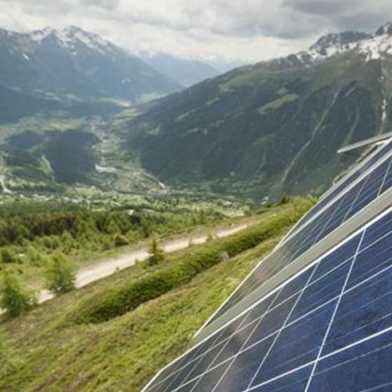
In a paper published in Science Advances in September, ETH Professor Thomas Bernauer and ETH Senior Researcher Liam Beiser-McGrath reported a surprising finding regarding the achievement of sufficient public support for carbon taxes: They found that revenue recycling could help achieve majority support for carbon tax levels of up to $50 to $70 per metric ton of carbon, but only if industrialized countries join forces and adopt similar carbon taxes.
Call for a counterproposal to the pesticide initiatives
Media

The two popular initiatives on drinking water and a ban on pesticides are justified, but inflexible. Professor for Aquatic Chemistry at ETH Zurich Bernhard Wehrli calls for a counterproposal to tackle the issue. (Re-post from ETH News)
Radio SRF: Thomas Bernauer on States' Indebtedness
Media

The IMF is worried because of many states' increasing indebtedness, and talks of new risks in the world economy, ten years after the 2008 financial crisis. As a trade expert, Thomas Bernauer is analyzing the current situation from an economic as well as political perspective on the Swiss Public Radio (SRF 4).
Thomas Bernauer Featured in Austrian Public Broadcasting Article
Media

After his talk in Vienna, the ISTP Director Thomas Bernauer was featured in an article by the Austrian public broadcasting company (ORF). His talk was around the 'water war' hypothesis, which is pretty prominent because of climate change. However, Thomas' research shows that water conflicts rather lead to cooperation between states.
Special Bags for Crop Storage in Sub-Saharan Countries
Media
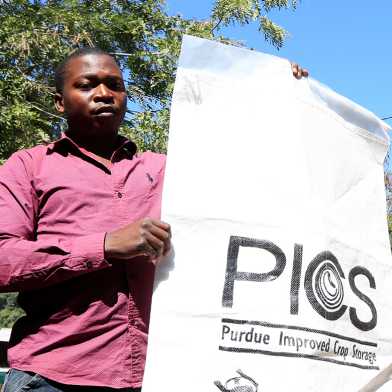
In a project by the University of Zurich, the impacts of improved crop storage on food security of smallholder farmer's households and on local market prices are analyzed. This research in Tanzania by Matthias Huss (Principal Investigator), Michael Brander (Doctoral Student in the International Relations Group) and Thomas Bernauer is reported in the major Swiss newspaper “Tagesanzeiger”.
'Echo der Zeit' Contribution on Climate and Conflict with Thomas Bernauer
Media
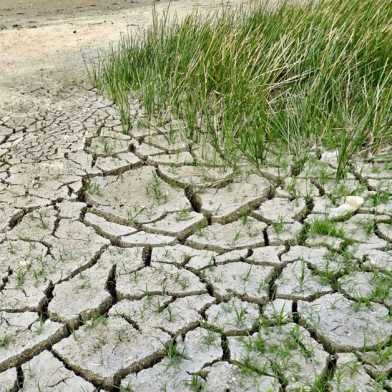
The Director of our Institute, Thomas Bernauer was featured in a Swiss National Radio contribution on climate and conflict. The radio report in the renowned 'Echo der Zeit' program deals with the scientifically contested relationship between climate and conflict as well as migration.